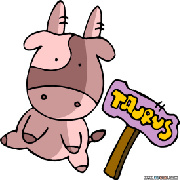

|
China's top broadcasting watchdog has ordered a ban on advertisements inserted in TV dramas. The ban was released on Monday by the State Administration of Radio, Film and Television and goes into effect on Jan 1. The provision was issued "in accordance with the people's interests and demands", Xinhua quoted an unidentified official at the administration as saying. The top broadcasting watchdog is now requiring all TV broadcasters to re-arrange their programs and delete commercials that are scheduled to air in the middle of soap operas and other dramas. The administration warned any violations of the ban would incur harsh punishments and invited audiences to monitor how well the TV stations follow the regulations. |

|
If the State Administration of Radio Film and Television does not allow ads during TV dramas, they should evaluate the loss it will incur to broadcasters, and whether the loss will threaten their survival. In ignoring their benefit in the name of public welfare, the policy will definitely face their resistance, in whatever form, or they will have to compensate for the losses by other means. |
|
Advertising revenue takes up a big part of broadcasters' income. If this pie's gone, broadcasters may not have enough money to introduce or make excellent TV dramas, which will result in a drop in the overall quality of TV dramas. Additionally, ads are sure to be inserted in the dramas, whether in lines or in scenes, and thus harm the aesthetic effects and finally influence the viewing experience. The audience, who is supposed to be the beneficiary from this policy, is ultimately the victim. |
|
It is quite OK to broadcast ads during TV dramas, which is the practice of many other countries and regions. The point is to regulate the amount and the quality. We cannot simply ban all the ads just because there are too many of them. It seems to be a convenient but in fact rather heavy-handed measure. |
|
After ads ban was released, many people praised the decision as "the only good deed that this notorious department finally did". However, we would feel a chill when probing deeper into this revelry: The authority is abusing its power to manipulate the market and actually get approval from the public. Thus, in which way is it different from the the "Cultural Revolution" mentality? |
|
There is said to be no more ads during TV dramas. Great move! Even one who seldom watches TV dramas like me cannot tolerate those annoying ads appearing every several minutes. It is both a disturbance to audience and disrespect to the writers of the dramas. Every drama has its organization, which does not deserve to be spoiled by those unrelated ads. Now finally we can enjoy one episode from the beginning to the end. |
|
Many people worry that the advertising revenues of the TV stations will suffer greatly as a result of the policy, but I do not agree. The ads demand will not disappear because of the prohibition and is more likely to find other means to be met. In the short term, they may see a drop of revenue, but in the long run the result is very probable to be an increase of broadcasters' self-made TV dramas, with product placements everywhere. To sum up, the greatest victim of this move will be privately-owned TV drama makers. |

|
Since the regulation comes into effect in the coming January, whatever effect it will have on audience, broadcasters and advertisers alike remains to be seen. As is in the "double-edged sword" cliche, some are bound to benefit from this policy while others will definitely get hurt, financially or otherwise. But before all the real-life drama kicks in, why not sit back now and enjoy some quality TV dramas, and, in the course, possibly some interesting ads? |
 @caijing.com.cn
@caijing.com.cn  @linghudaxiaMIT Sina Weibo user
@linghudaxiaMIT Sina Weibo user @Tanfei Movie critic
@Tanfei Movie critic  @17jinzhi Writer
@17jinzhi Writer @Beijingwanghui Director of Information Office, Beijing Municipal Government
@Beijingwanghui Director of Information Office, Beijing Municipal Government @Mutong Sina Weibo user
@Mutong Sina Weibo user